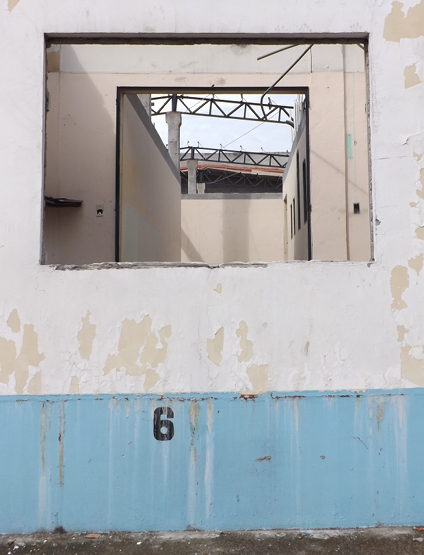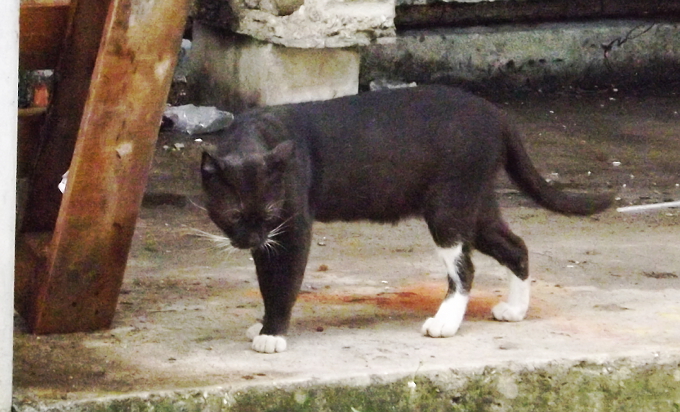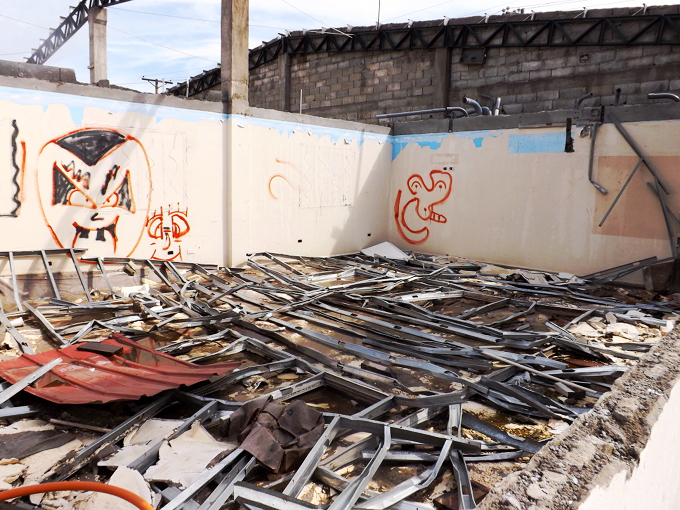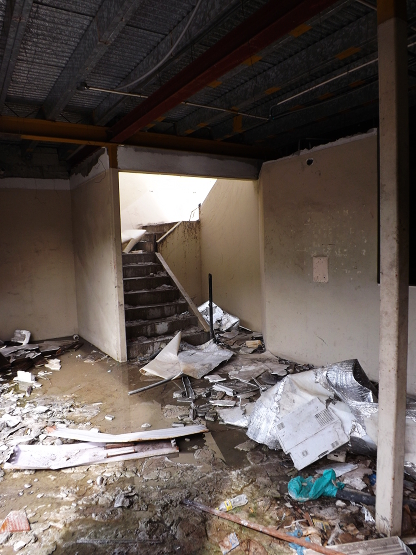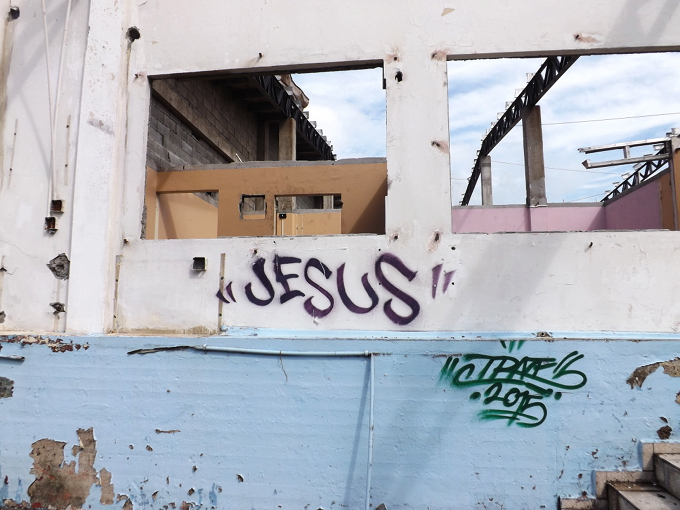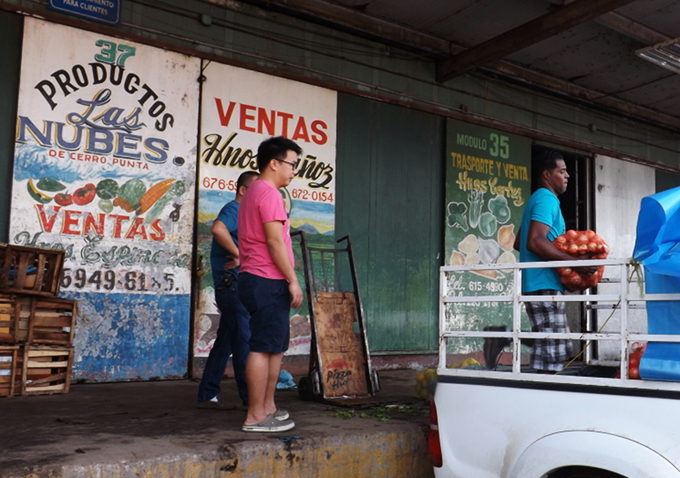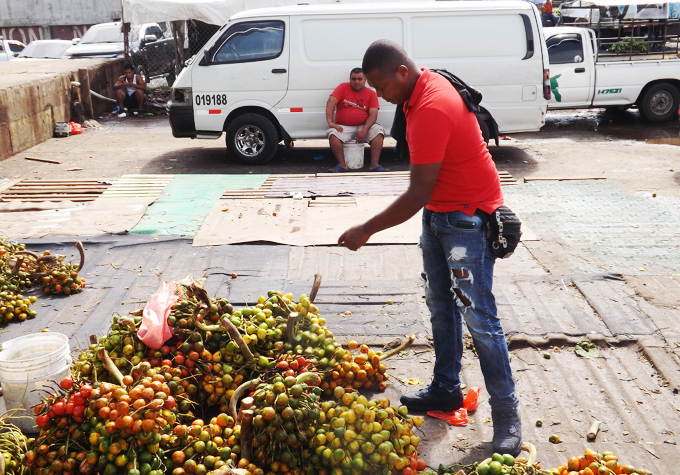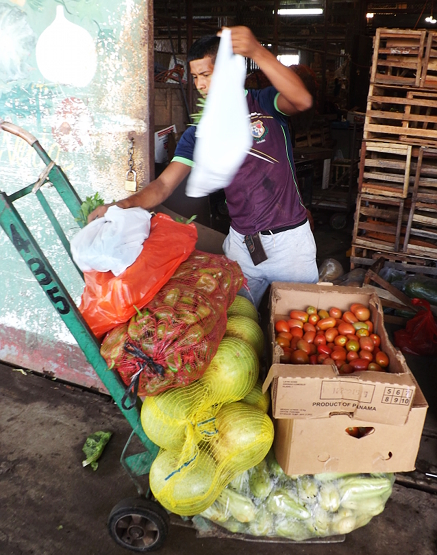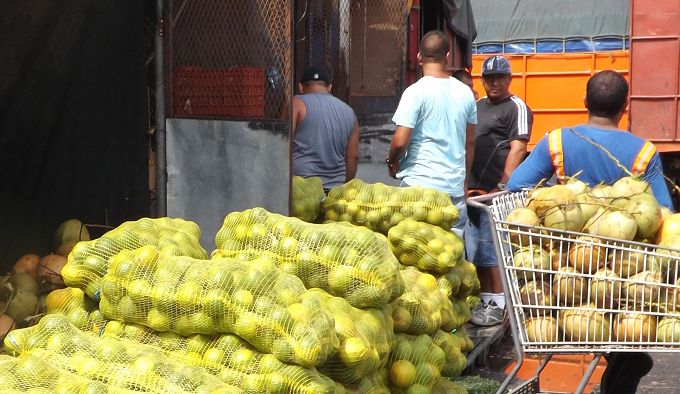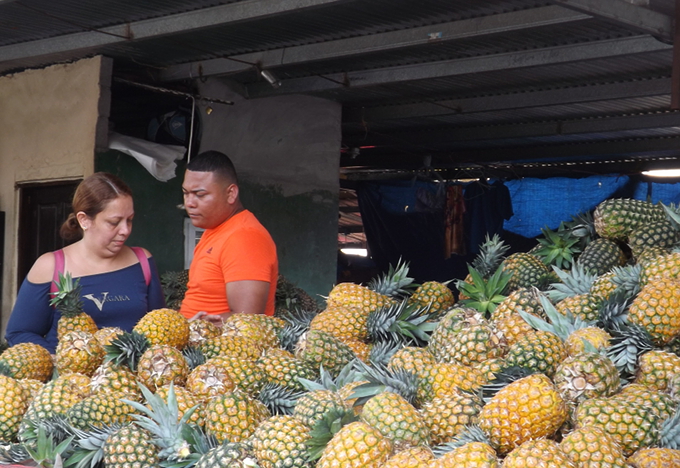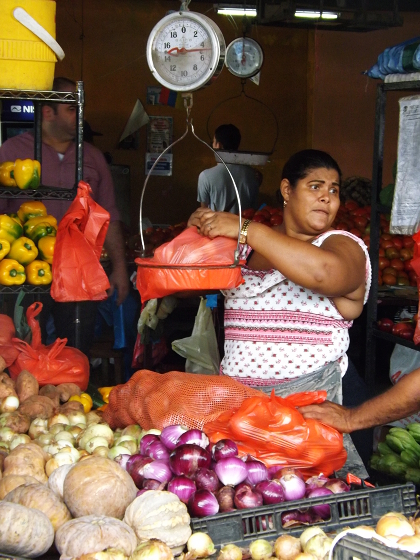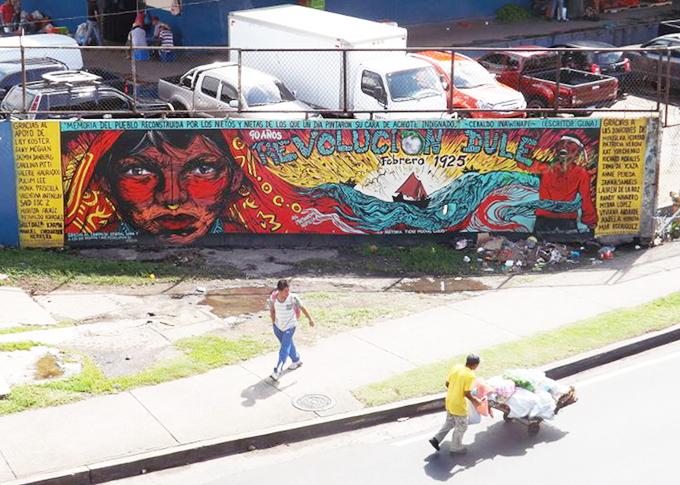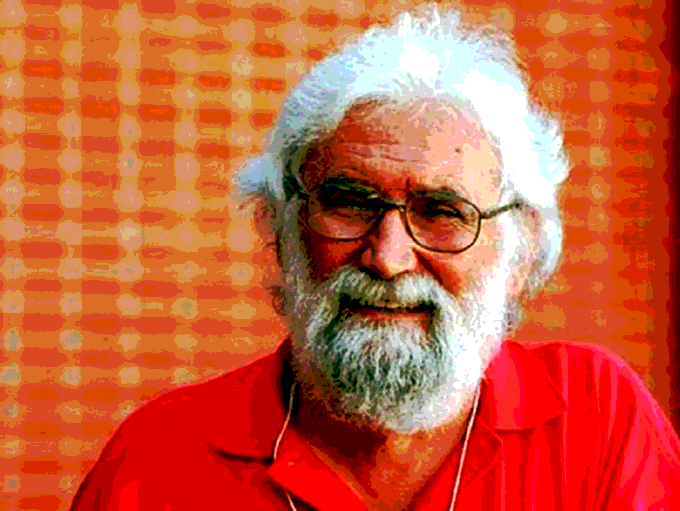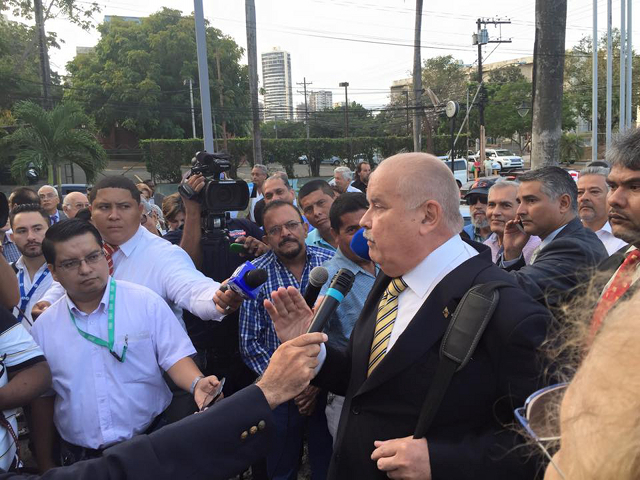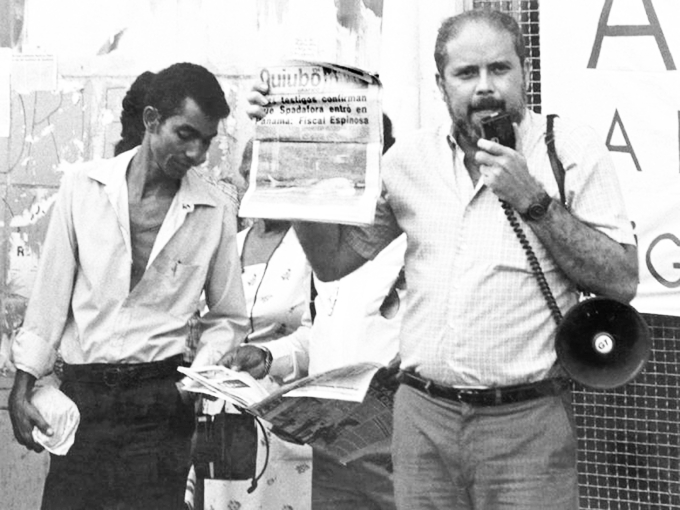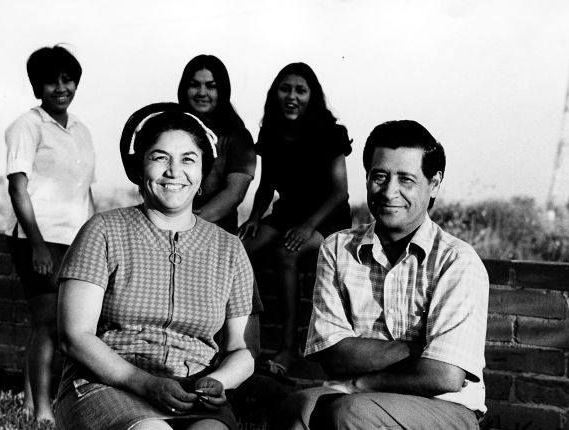Seguro Social would do well to put English and Chinese subtitles on such videos, but with the graphics this message should be understandable to many people who do not understand Spanish.
The flu: prudence and a bit of panic
by Eric Jackson
From whence this reporter usually writes, looking through the window in the morning’s first light, not long after the roosters have announced their presence to the world, there begins this procession of people walking up the muddy footpath from the hollow. First it’s mostly men, including SUNTRACS members getting the early bus to construction sites mainly in the beach communities, some as far away as the capital. The neighborhood’s working women tend to have jobs closer to home, so they follow a bit later to catch buses to jobs in Penonome, or in Anton or beyond. Then come the school kids, the youngest with mothers escorting them, heading to the local elementary school while the high school kids head for the bus stop en route to schools in Anton or Penonome.
This past week, however, the traffic has altered. Hardly any kids have been going to school. The ministries of health and education may be telling us that the flu outbreak that took off with the belated advent of rainy season is a concern but not such a big one, that schools are open as usual and above all, don’t panic. But at the government health care facilities people have been showing up at droves to get flu shots, at public and private schools attendance is way down and the official death toll of confirmed flu deaths is up to 22.
The problem is that we don’t know precisely what we are dealing with here. It seems like the A(H1N1) strain of influenza, but what doctors are seeing are on the whole more severe symptoms than had been previously reported from that and La Prensa has reported that most of the flu patients tested have come up negative for that particular strain. Samples have been sent to the US Centers for Disease Control in Atlanta for evaluation and advice. The combination of deaths and the unknown is a sure formula for fear. One with a bit of scientific and historical knowledge will understand that influenza strains tend to mutate as they spread — sometimes becoming more dangerous, sometimes more benign — and surmise that we are probably seeing a recent variation here. That would likely mean that the vaccines, which are not formulated to precisely what ails Panama, would be a bit less effective but would still be better than nothing, offering immunity to most and less severe symptoms to many of those who get sick anyway. But doctors are not gods and most government officials and journalists are not doctors, and the rumor mill is not known for its subtlety. Both reasonably and beyond reason, many people are afraid.
Leave it to the government to panic.
The administration’s woes are partly unrelated. As the flu outbreak spread, the first lady was to go to New York for a UN General Assembly session on HIV and AIDS along with Health Minister Javier Terrientes. But Terrientes, begging off about another commitment, sent the vice minister, Miguel Mayo, instead. That other commitment was a trip to Chicago to see the Panama versus Argentina soccer game, in the company of another government employee, the minister’s female companion. When President Varela found out about it he was not amused, called Terrientes onto the carpet about it, at which point the minister resigned. That came during the course of a cabinet shuffle that was ongoing anyway, but at a terrible time in the Ministry of Health. The replacements were orderly: Dr. Mayo moving up to the minister’s spot, the ministry’s secretary general Dr. Erick Ulloa moving up to the vice minister job.
Meanwhile, during that transition the Gorgas Institute’s Dr. Néstor Sosa held a press conference to announce to the selected rabiblanco mainstream media reporters that unspecified “false information” about the flu situation is circulating in the social media and that a criminal law against economic sabotage by way of unfounded and damaging rumors would be invoked. He claimed dibs for the government as the only source of proper information about influenza. “Let us remember that the Penal Code provides for prison sentences for those who spread false news or rumors for the purpose of affecting national or economic security,” Sosa warned, as if the parents ignoring his advice and keeping their kids out of school — or anyone else — has that specific intent.
As people moved offices in the health ministry and word from Atlanta was pending, the public health care system pretty much ran out of vaccine. But fresh supplies were coming from France and elsewhere and flu shots will again be available at most public health facilities on Saturday.
[Editor’s note: Wash your hands with soap and water more often than you usually do. Avoid crowds to the extent that you can. If you have any flu or cold symptoms, don’t leave home unless they are so bad that you need to seek medical attention. Don’t share eating or drinking utensils. Show more reserve than is the friendly Panamanian norm, by avoiding handshakes, kisses and embraces for the moment. Know that the flu shots are safe and probably helpful. It is quite possible, you see, to be reasonably prudent without having all of the information that you would like to have at your disposal.]
~ ~ ~
These announcements are interactive. Click on them for more information.







